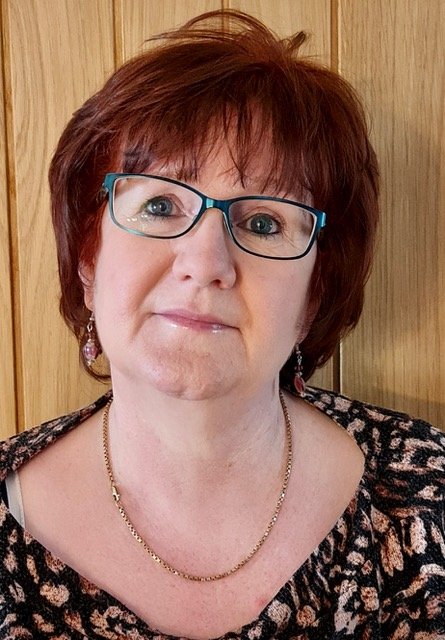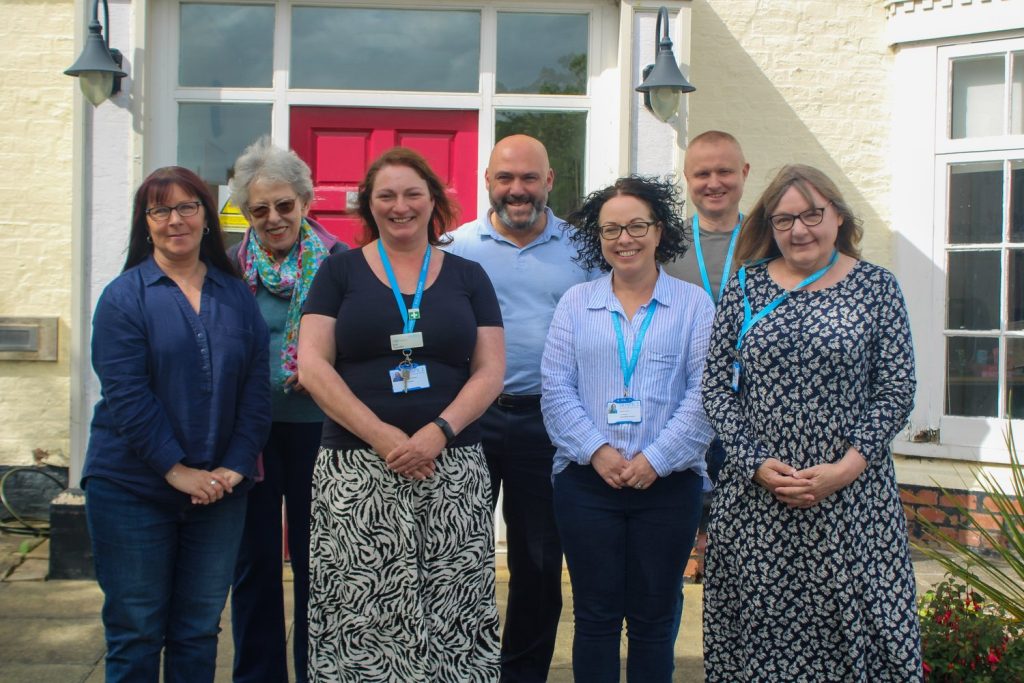Who has the words to help a terminal patient come to terms with the reality of their impending death?
Who takes the responsibility for helping young children understand that they’re going to lose mummy or daddy forever?
Who is resilient enough to work with a dying parent to help create memory boxes, buy presents and write farewell letters and birthday cards to be handed to their children after their death?
Who has the skills to help a young person overcome the trauma of losing someone very special?
People like Christine Ankers.
Christine is the Counselling Manager at The Hospice of the Good Shepherd, working with a team of experienced, skilled and dedicated counsellors who between them bring a range of specialist skills in both adult and child bereavement counselling.
“I’d worked as a counsellor elsewhere and visited the hospice to see a friend who was a patient here. There was a lovely feel around the place – no sense of doom, gloom or sadness at all. it felt like a really uplifting place to be. When a counselling role became available, I applied and was lucky enough to be appointed.”
Christine qualified as a counsellor after experiencing her own personal loss. “On the surface I would have appeared chatty, bubbly and confident but deep down I was in a state of darkness.
“I didn’t think I’d ever again be able to smile or experience happiness. Although I was initially dubious about the value of having counselling, it proved totally transformative for me – that’s how I got involved in counselling.”

She continued: “It’s just magical to work with complete strangers who trust you enough to share their most intimate details with you and then see them have that lightbulb moment that can pull them out of their own profound darkness and change their lives forever. It’s so humbling. It’s really all about building trust and truly listening to people.”
How do people cope with the approach of the end of their lives? “Most individuals worry less about themselves than the loved ones they will be leaving behind. There’s inevitably sadness and continuous expressions of love but rarely a sense of anger,” Christine explains.
The role is incredibly varied: “In just one day I could be listening to a very unwell 80-year-old who’s in tears as he looks back on the life that is ebbing away, encouraging a couple to open up to each other before it’s too late, helping them to start the difficult conversation that they have been unable to start on their own, and helping a young person to understand why they feel so angry about their parent being diagnosed with a terminal illness.”
“We’re often asked to write letters and birthday cards to children, partners and siblings when patients can no longer do that for themselves, perhaps because they are now too ill or not really able to find the word to say what they want to say.
“There will be thank you and goodbye letters and we’ll help children write letters to their dying parents. We’ll help create memory jars and boxes, and buy presents on behalf of patients that can be given to loved ones at Christmas, on birthdays or other special occasions after their death.
“When patients need us, we will do our best to respond almost instantaneously. By the time they ask, they can be close to the end and there might be only a short window during which they are still able to verbalise their wishes.”
Working with children who have been or are facing bereavement requires special skills, as Christine explains: “Without the tools and experience to understand and process what’s happening, children can react with anger when they face losing someone close to them. That’s often the easiest way for them to react when they don’t have the experience to process and verbalise their feelings
“Some of the team are specifically qualified in art or play therapy and will use art, figures and even marbles to enable them to get their feelings across. Sometimes there will be more than one counsellor working with a family, depending on the circumstances and the skills they need.”

The impact on children and young people from the loss of someone close can be devastating. “Anger, self-harm, loss of self-esteem, absenteeism, disengagement, broken relationships – these are just some if the symptoms that are common and can have serious, long-term consequences if they’re not addressed.”
It’s not just hospice patients and their families that the team is able to support “We run the Reflect bereavement counselling service specifically for young people in Cheshire West who have been affected by bereavement. We work with individuals, in group settings and in local schools.”
The Hospice of the Good Shepherd also provides informal drop-in adult bereavement support sessions at various locations including Storyhouse, Ellesmere Port Library and at the hospice.
How does Christine and her colleagues cope with being constantly faced with the pain, panic and intense anguish of others without it affecting their own well-being?
“We learn to keep some emotional distance without which we just wouldn’t be able to do the job as well as we need to, and as well as our clients deserve.
“We also have opportunities to share our feelings with colleagues on a formal and semi-formal basis if we need to, and we’re all good at switching off away from work and exercising self-care. In my case, that involves singing and music in general which are very emotive and therapeutic for me. I also write poems and short stories and look after various animals, as well as baking and gardening.
“It can be tough, there’s no question but if I and my colleagues don’t step forward to do this work, who will?”



















